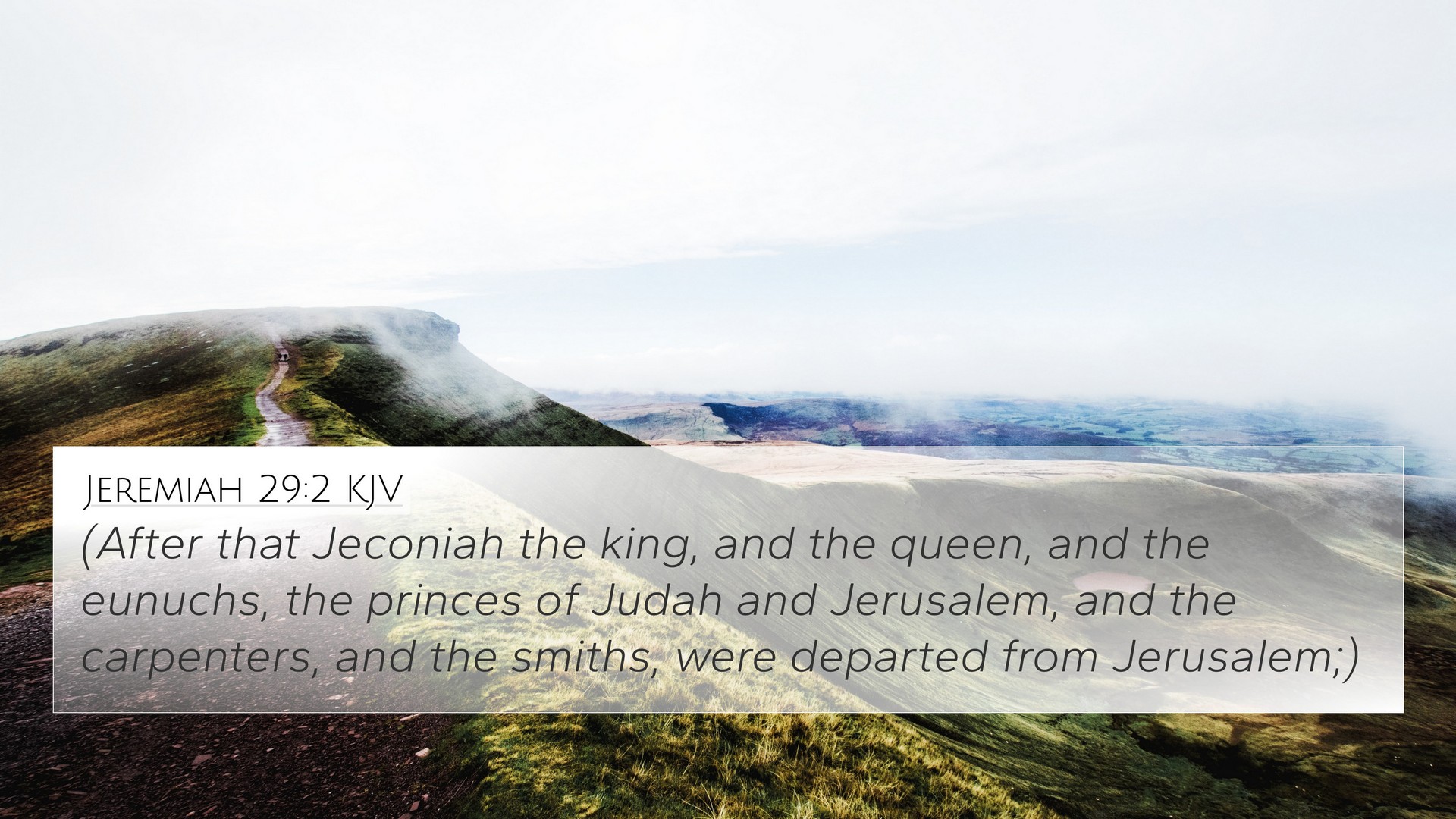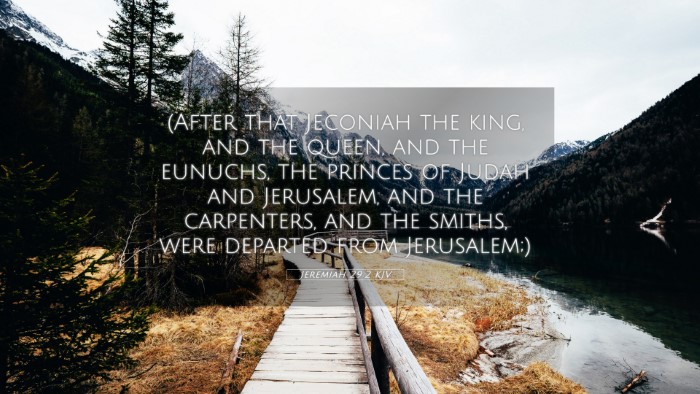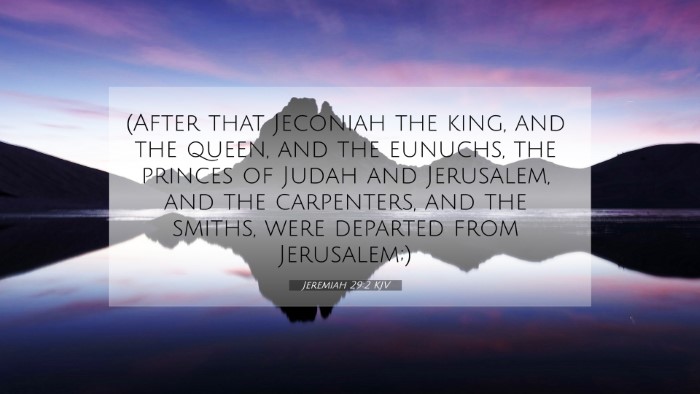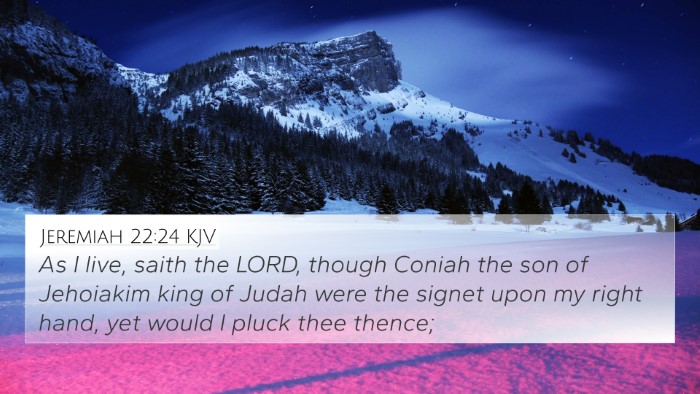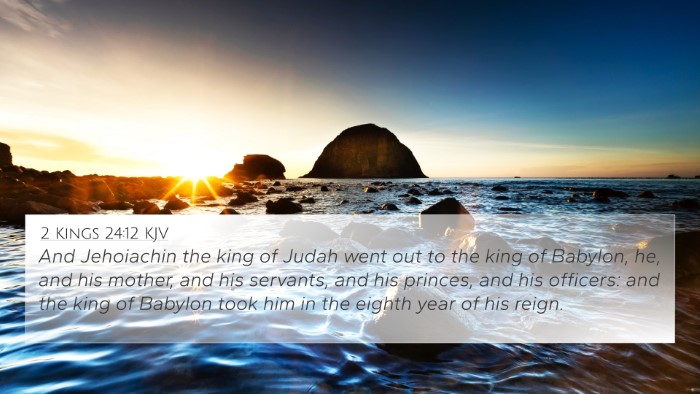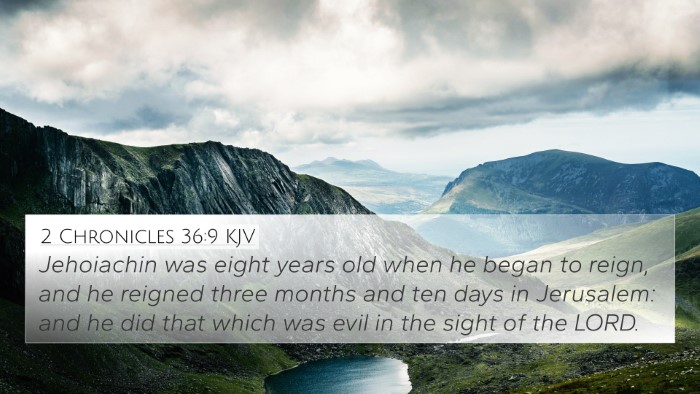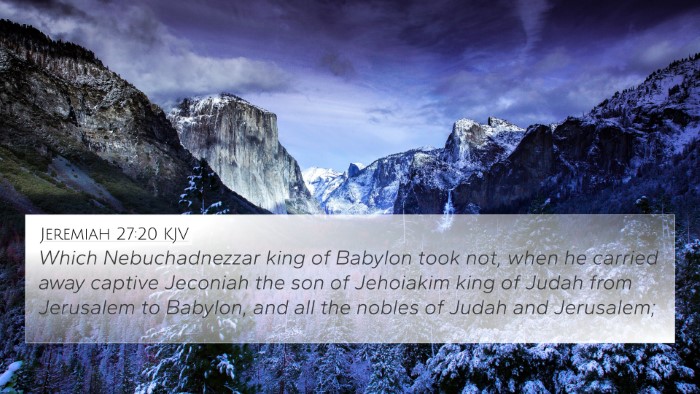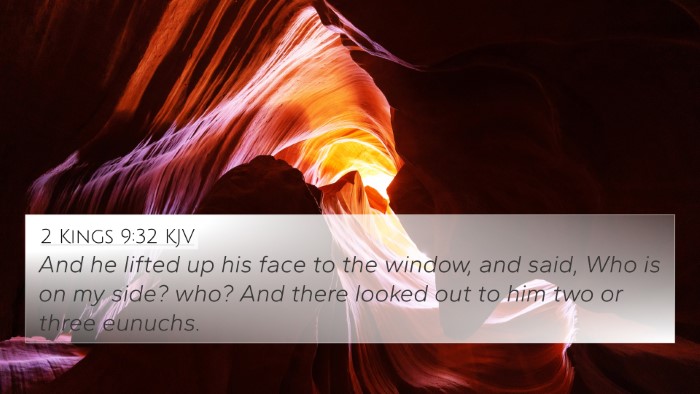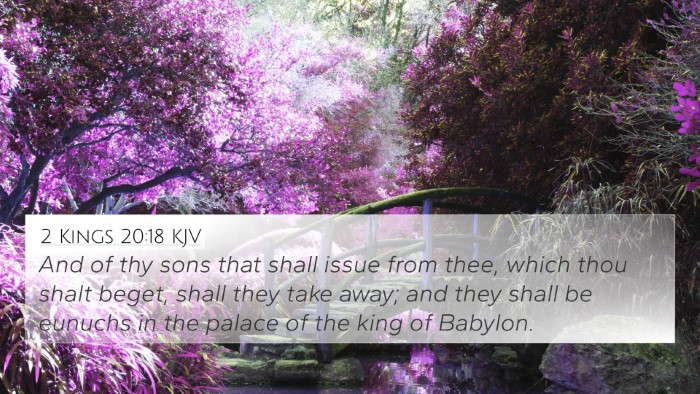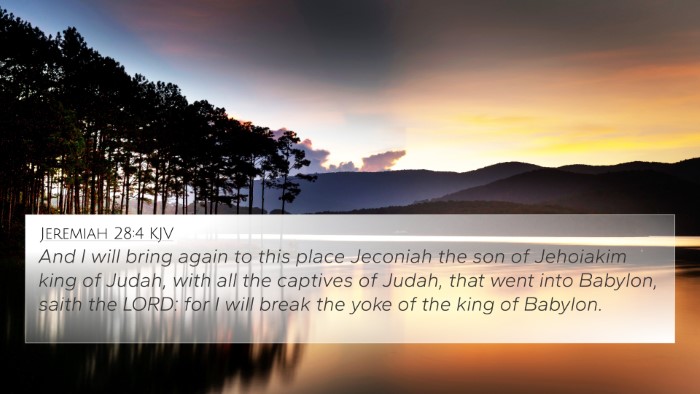Understanding Jeremiah 29:2
Jeremiah 29:2 states, "(This was after King Jeconiah and the queen mother, the court officials and the leaders of Judah and Jerusalem, the skilled workers and the craftsmen had gone into exile from Jerusalem.)" This verse is a significant point in the Book of Jeremiah, shedding light on the historical context of the Jewish exile in Babylon. Below is a detailed examination of its meaning, drawing from insights garnered from public domain commentaries.
Historical Context
The first aspect to consider is the historical situation surrounding this verse. The Jews, having faced disastrous events that led to their Babylonian exile, find themselves in an unfamiliar land. Matthew Henry emphasizes that this period marked a significant shift, both spiritually and nationally, for the Israelites. The removal of King Jeconiah and the prominent class of citizens left a vacuum in leadership that would deeply impact the people.
Spiritual Implications
From a spiritual perspective, Albert Barnes highlights that Jeremiah's letter to the exiles serves as an encouragement. Throughout their trials, God has not forsaken them. The context of exile is often used throughout the Bible to represent testing and refining—similar themes appear in other scriptures such as 1 Peter 1:6-7, which discusses suffering as a means of strengthening one’s faith.
Direction and Hope
As Adam Clarke notes, the chapter carries an important message of hope. God reassures His people that their exile is not the end. Instead, He provides a sense of direction. The verses that follow Jeremiah 29:2—especially Jeremiah 29:11—speak to God’s plans to prosper His people and give them a future. This concept of divine providence is echoed in Romans 8:28, where all things work together for good for those who love Him.
Thematic Connections
This verse serves as a bridge for linking Bible verses that deal with themes of exile, hope, and God’s enduring faithfulness. Below, we explore biblical cross-references that resonate with the themes found in Jeremiah 29:2:
- Jeremiah 29:11: “For I know the plans I have for you,” declares the Lord, “plans to prosper you and not to harm you, plans to give you hope and a future.”
- Isaiah 40:1-2: “Comfort, comfort my people, says your God. Speak tenderly to Jerusalem and proclaim to her that her hard service has been completed…”
- Ezekiel 11:16: “Therefore say: ‘This is what the Sovereign Lord says: Although I scattered them among the countries, yet in the distant lands I will be a sanctuary for them.'”
- Romans 8:28: “And we know that in all things God works for the good of those who love him, who have been called according to his purpose.”
- 1 Peter 1:6-7: Discusses how the trials believers face are to refine their faith.
- Lamentations 3:22-23: “Because of the Lord’s great love we are not consumed, for his compassions never fail. They are new every morning; great is your faithfulness.”
- Hebrews 12:11: “No discipline seems pleasant at the time, but painful. Later on, however, it produces a harvest of righteousness and peace for those who have been trained by it.”
The Cross-Referencing Dialogue
Using cross-referencing tools and approaches to understand the inter-Biblical dialogue adds depth to our understanding of Jeremiah 29:2. By exploring connections between this and other passages, we draw thematic links that allow us to see God's work across different contexts.
Connections Between Bible Verses
Connections to this verse can illustrate how God’s promises extend through times of hardship and provide an overarching narrative of redemption:
- Deuteronomy 30:1-3: Discusses the eventual restoration of the people.
- Matthew 5:4: “Blessed are those who mourn, for they will be comforted,” ties to the hope that God provides amidst sorrow.
- Philippians 4:19: “And my God will meet all your needs according to the riches of his glory in Christ Jesus,” reiterates God's provision.
Understanding through Comparative Bible Verse Analysis
When doing comparative analysis between Old and New Testament scriptures, one can observe how God’s faithfulness and hope persist throughout the narrative. These analyses can enhance one’s study using methods like:
- Bible concordance: Helps identify verses with similar themes.
- Cross-reference guide: Provides direct links between scriptures.
- Sermon preparation: Using cross-referenced materials to build and strengthen messages.
Conclusion
Jeremiah 29:2 encapsulates themes of exile and proclaims God's enduring faithfulness and hope for the future. By examining this verse through the lenses provided by established commentaries and cross-referencing it with related biblical texts, one can gain a deeper understanding of its meaning and implications. These insights lead not only to a better grasp of scripture but also enable believers to apply these principles in their lives, ensuring that the message of hope transcends generations.
Final Thoughts
The ability to link and cross-reference Bible verses enriches the study experience, allowing both individual and collective growth in faith. By employing these methods, believers can unlock the deep spiritual treasures the Bible has to offer, fostering a comprehensive understanding of God's word and purpose.
